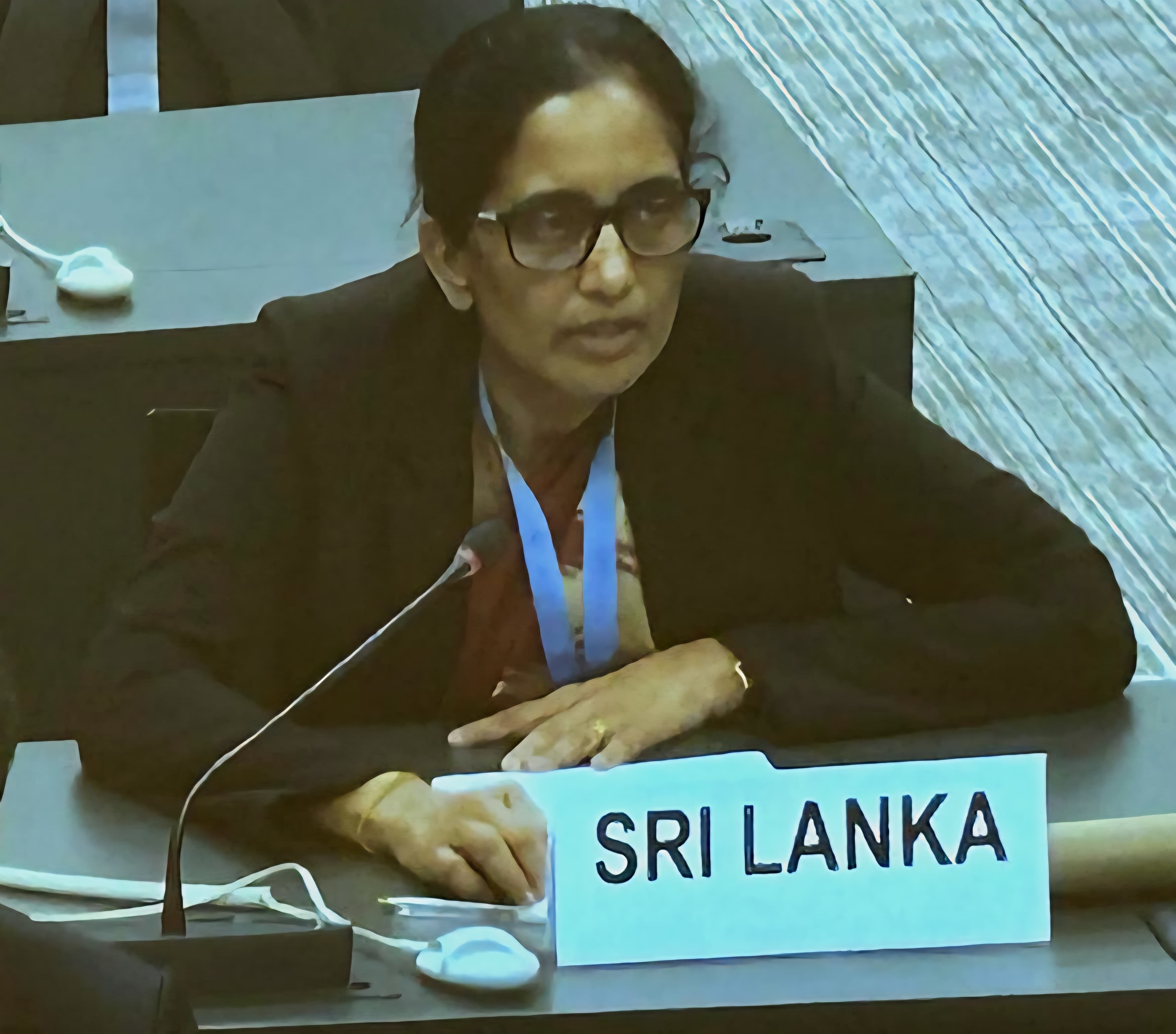
Mr. Coordinator,
I would also like to join others to appreciate the manner that you guide the discussion in this Subsidiary Body.
Sri Lanka reaffirms its unwavering commitment to nuclear disarmament and the establishment of robust legally binding security assurances to protect non-nuclear-weapon states from nuclear threats which is long overdue and has been in the CD agenda since its inception in 1979. The Final Document of Special Session on Disarmament (SSOD-I) in 1978 and subsequent review Conferences of the NPT had also outlined the need for such assurances.
While recognizing that the nuclear-weapon States have provided certain security assurances to non-nuclear-weapon States through UN Security Council resolutions, unilateral declarations and various pledges as well as taking efforts in establishing nuclear-weapon-free zones, it is noted that such voluntary commitments are non-binding and attach conditions. Nuclear-weapon-free zones also do not cover all regions. Today, we see the real challenges in the establishment of a nuclear-weapon-free zone in the Middle East.
Therefore, the only effective guarantee against nuclear threats is the total elimination of nuclear weapons. Pending this, Sri Lanka urges the Conference on Disarmament (CD) to start substantive work on concluding an international legally-binding instrument providing unconditional guarantees to non-nuclear-weapon States.
Towards this direction, the overlapping elements and shared principles of the existing unilateral declarations, Security Council resolutions, and protocols to establish Nuclear Weapons Free Zones could be perceived as a starting point for negotiations. The unresolved questions such as;
i. which States should give the assurance: whether the States Parties to the NPT or all nuclear armed States and;
ii. which States would be eligible to receive the assurance
need to be resolved through inclusive negotiation.
Sri Lanka emphasizes that effective international arrangements for negative security assurances must address both immediate security concerns as well as long-term disarmament goals. It is also essential to strengthen the IAEA safeguards under Article III of the NPT to ensure compliance, enhance transparency measures, real-time monitoring and to ensure peaceful use of nuclear energy.
Sri Lanka was one of the earliest supporters of Nuclear Weapon Free Zones. At the 1964 Non-Aligned Summit in Cairo, the leading role played by the then Sri Lankan Prime Minister Sirimavo Bandaranaike led the summit to issue a declaration in favor of global “denuclearized zones”. Sri Lanka advocated for extending Nuclear Weapon Free Zones to cover not only land masses but also the oceans, reflecting its forward-thinking approach to nuclear disarmament. Also allow me to recall that in 1971, Sri Lanka made an indelible mark on the world stage by being instrumental in the passage of a historic resolution at the United Nations to declare the Indian Ocean region and its airspace as a Zone of Peace. As the Chair of the Indian Ocean Rim Association (IORA), Sri Lanka continues to foster its enduring commitment to promoting peace, unity & stability in the region. Our longstanding approach to non-alignment and advocacy for complete elimination of nuclear weapons, has positioned Sri Lanka as a credible partner in support of Nuclear Weapon Free Zones.
As the sole multilateral disarmament negotiating forum, the CD must act decisively to fulfill its mandate and must prioritize drafting a legally binding agreement on security assurances for non-nuclear states without further delay and this could be the lowest hanging fruit to break the impasse. Therefore, we extend our support to the Subsidiary Body 4 to expedite discussions on concrete measures to negotiate an unconditional, legally binding instrument for negative security assurances, including verification mechanisms for compliance.
Thank you
